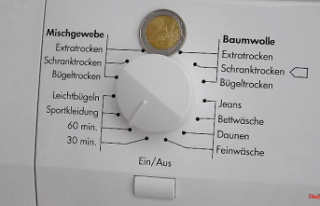Approximately every second person in Germany struggles with headaches over the course of a year. There are many ways to combat pain. The condition can often be relieved with over-the-counter medication. Warentest has tested the active ingredients.
First of all, the warning: If you often suffer from headaches or migraines, you should definitely consult a doctor. Of course, this also applies if the pain seems very severe or unusual or is accompanied by other symptoms such as paralysis, severe dizziness or high fever.
Otherwise, painkillers that help quickly in acute cases are a blessing. But sometimes also a curse. Because in excess, they can cause headaches themselves. They often resemble those that were originally treated. This can lead to a vicious circle if those affected fight the pain again with painkillers or acute medication for migraines.
The painkiller experts at Stiftung Warentest have tested the most important active ingredients in common painkillers and have made a few recommendations. But let's start without medication first. If the pain occurs only occasionally and easily, alternatives to the tablet can often help very well. The testers point out that even a walk can be a tried and tested remedy for slight pressure in the head. Exercising in the fresh air stimulates the circulation and supplies the brain with fresh oxygen. With a bit of luck, the pain will be gone.
Cold compresses can also relieve mild pain. Anyone who has had a bit too deep a drink should try a "hangover breakfast" first. Sour herring, pretzel sticks, cucumbers and lots of water or tea may bring your head into balance without medication. A common cause of headaches is lack of fluids. If we drink too little non-alcoholic liquid, the head may complain of pain. By the way, the breakdown of alcohol removes water from the body, which often also leads to complaints.
If it does have to be a drug, the study shows that the well-rated preparations help against very different types of headaches. But these all-rounders are often not enough, especially for migraines and cluster headaches. In this case, other active ingredients are available - with and without a prescription, sometimes also preventively. But at least there are some over-the-counter, good and inexpensive remedies available in pharmacies that can at least provide relief.
Over-the-counter medicines include preparations with the active ingredients acetylsalicylic acid (ASA), ibuprofen and paracetamol. These tablets are suitable to combat mild to moderate headaches. When buying, you should definitely seek advice from the pharmacy as to which active ingredient is most suitable for which symptoms and which side effects may threaten.
Patients can save themselves wrong purchases, because there are sometimes large price differences for medicines with a specific recommended active ingredient. For example, a pack of paracetamol with 20 tablets and 500 mg of active ingredient from ADCG costs 0.96 euros. If you use Ratiopharm effervescent tablets with the same amount of active ingredient, you pay 8.20 euros. If these funds are still not enough, then you should definitely consult a doctor. Depending on the symptoms, he can then prescribe the right remedy in the right dosage.
For headaches caused by migraines, the active ingredients almotriptan, naratriptan or sumatriptan may be used. These unfold their pain-relieving effect particularly effectively if they are used early in a migraine attack.
But even if these drugs are available without a prescription, it is strongly recommended to seek advice from the pharmacy or to consult your family doctor. For example, some preparations should not be taken by people who suffer from circulatory disorders.












